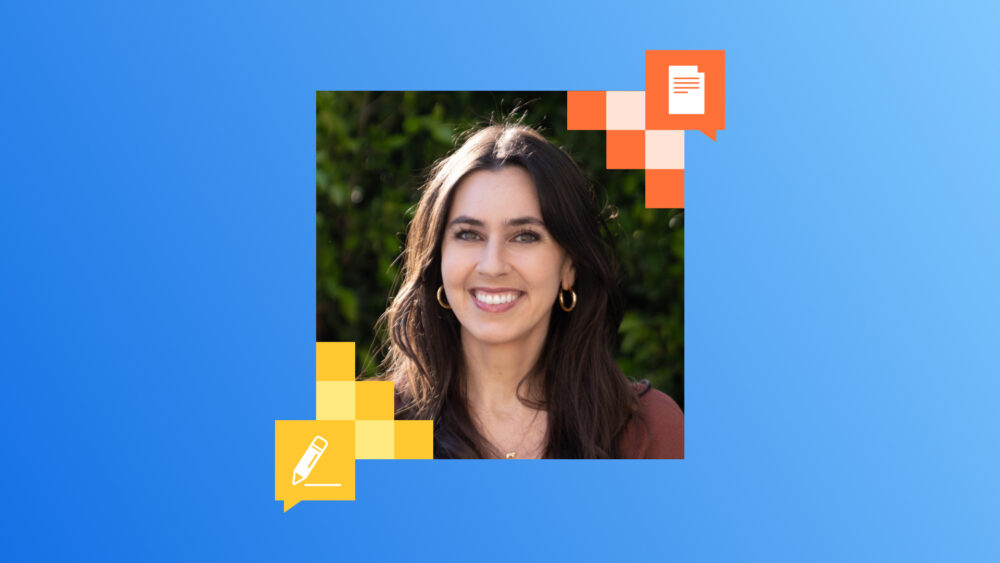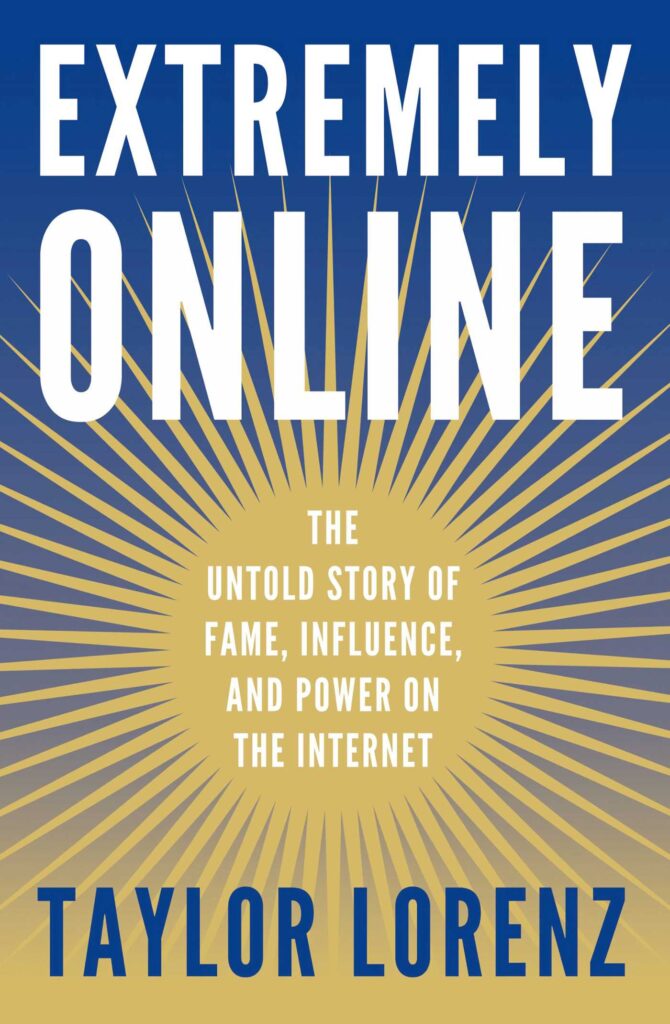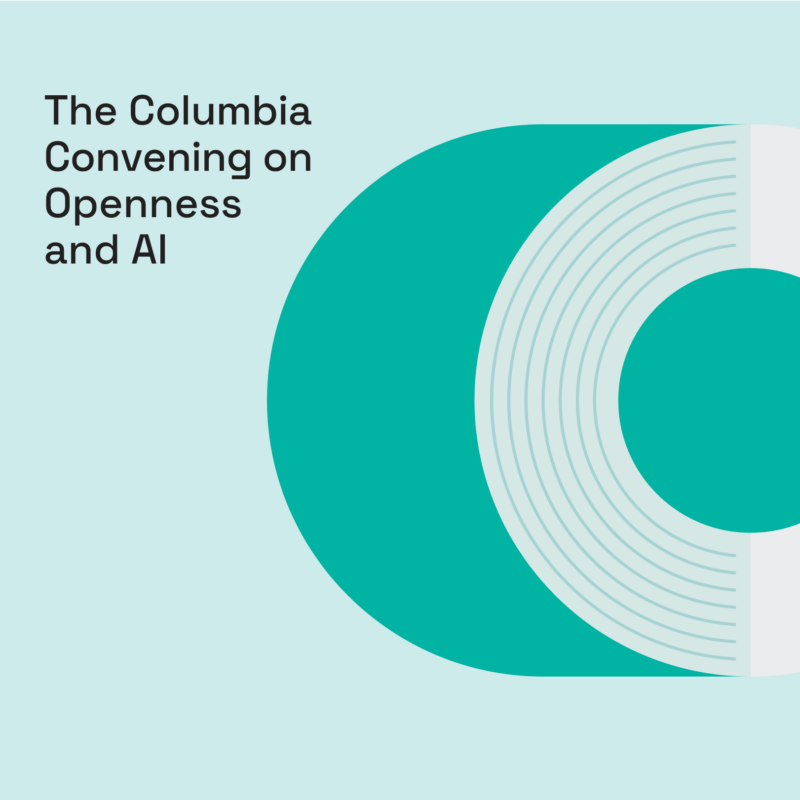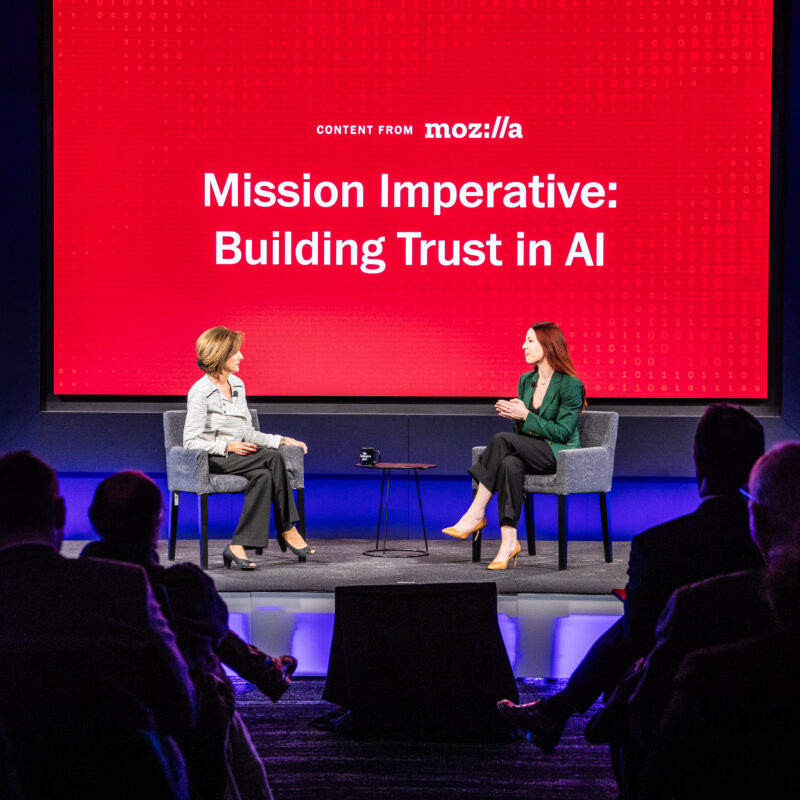
Tech journalist Taylor Lorenz on being ‘extremely online,’ sponcons gone wrong and her dream dinner party
Here at Mozilla, we are the first to admit the internet isn’t perfect, but we know the internet is pretty darn magical. The internet opens up doors and opportunities, allows for human connection, and lets everyone find where they belong — their corners of the internet. We all have an internet story worth sharing. In My Corner Of The Internet, we talk with people about the online spaces they can’t get enough of, the sites and forums that shaped them, and what reclaiming the internet really looks like.
This month we chat with Taylor Lorenz, a columnist for the Washington Post covering technology and online culture about her new book releasing October 3, how Tumblr changed her life, lawn care internet deep dives, and a healthy Daily Mail obsession.
What is your favorite corner of the internet?
I feel like such a boomer/millennial saying this, but I love the Instagram meme world. I just find so many funny things there. And I mean, everyone’s declared Instagram over like several times. But it’s still my sort of go-to platform, and I just think that I always find new and silly and funny accounts on there. People want to declare everything over, but it’s not over.
What is an internet deep dive that you can’t wait to jump back into or that has taken way too much of your time recently?
I feel like this happens to me every single day. Lately, I’ve gotten very into lawn care. I don’t even have a lawn. But lawn care is so fascinating. There’s actually so many different types of grasses and techniques and there’s this whole movement to re-wild your lawn. I’m so all for the movement to rewild — everyone should rewild their lawn. I’ve just been going down such a rabbit hole of all of this content, and it’s totally changed how I walk around my neighborhood and look at people’s lawns now.
It also started because I saw videos of this guy that actually goes around and cuts people’s grass for free. And then I did the thing where you scroll up for more videos. And it gives you related videos. From there I just kept learning more. Now I want a lawn. I don’t even have one, but I have strong feelings about rewilding lawns, and I think that the lawns that we grew up with, of these scorched grass, it’s just bad for the environment, and they’re not even that pretty.
Is there one tab that you always regret closing?
I mean, this is toxic. But I read the Daily Mail homepage every day, of course. Every time I close it I open it like one second later. I can’t stay away. I have to know what’s on there. It’s just an addiction, I think. Cause I was gonna say, like email. But I never regret closing email. I can’t wait to close email and Slack. But the Daily Mail. I’m always like, OK, I gotta get back to work. And then, you know, two seconds later, I’m scrolling down the homepage. It’s the only website I read the homepage for.
What is the first online community that you engaged with?
I was on those AIM chat rooms catfishing people, of course, back in the day. I would always just pretend to be other people. It wasn’t really me being myself in those communities. I think the first online community I really meaningfully engaged with was Tumblr.
In 2009, I got a Tumblr, and it changed my life. Every single thing I have in life I owe to Tumblr. I’m not even kidding, I actually think my life would be over if I hadn’t discovered Tumblr when I did because I was working a really garbage temp job and kind of going nowhere, and like deeply, deeply depressed. And this girl that I shared a cubicle with introduced me to Tumblr, and I had never been exposed to so many interesting people and communities. And it just really changed my life because I realized, “Wow, there’s actually this whole world out there.”
I think it’s hard to remember for people that are young today and are growing up today how different it was. And I mean, we grew up as millennials. So it’s not even like we were super offline. But it was different — there wasn’t Twitter and Instagram in the same way that there are now, even 10 years ago. I think my world was very, very small. And Tumblr really opened it up. I’m just grateful for it.
Can you share a personal experience that makes you say this can only happen in 2023 on the Internet?
My God, what? Which? One? The school shooting sponcon. Did you see that?
No, what?
Oh, my God! Biore had to apologize. This girl was recovering from a school shooting, and she did this TikTok that was about how Biore kept her skin clear during the stressful time. I almost opened my book with it actually, because it was just the most dystopian thing — the tone was even cheery and upbeat. She’s like, after dealing with this school shooting last year and like being mentally traumatized, I turned to Biore. It’s so dark, and to me it just showed the commodification of death and trauma and this notion of having to package every single moment of your life for profit, which I think is uniquely of this time.
It’s a uniquely, kind of American thing in 2023. I think we’re in this hyper-capitalist landscape right now. And sometimes, you see these sort of stark examples of that just remind you of what we’re actually living through. And, it’s dark. I meant to reach out to the girl who originally posted and try and interview her, and then I got so sidelined with other stories I didn’t end up writing about it. But it’s just so interesting how people view moments in their lives.
I was thinking about this recently because I saw this TikTok that really resonated, about how a Gen Xer was talking about everything they could have used for clout in their life that they didn’t have a camera phone for. And they were talking about all this like crazy stuff they did in the nineties. And now people see real-life experiences as content and views.

What can you not stop talking about on the internet right now?
I can’t stop talking about my new book. I think people are actually ready to block me over it, because I post 150 times a day. But you have to do all your own marketing now for books. Anyway, I have a new book called “Extremely Online: The Untold Story of Fame, Influence, and Power on the Internet,” which comes out Tuesday, October 3. And it’s all about the first 20 years of social media, the rise of social media and how it warped all of our lives and taught us all to become posters. I really hope people love it. There’s so much fun, pop culture in there — crazy stories from the end of the Vine and Snapchat era and the early Myspace days. It’s all just really out there. Please buy it, please preorder it. Because I can’t stop talking about it.
As an observer and I would say, leader of internet culture, what trends or shifts in online behavior do you hope to see become defining features or normalized in the coming years?
One thing I think that people are just starting to talk about is privacy. People are sort of starting to realize the amount of data out there about themselves on the internet, and especially around young people’s privacy. There’s definitely been a conversation in the past couple of years of things like putting an emoji over your kid’s face, or don’t put everything online. You don’t have to share everything and use your children for content. It doesn’t have to go on a public Facebook, it can go in a shared iCloud folder or something. I just think privacy is such a luxury in this day and age. I’m incredibly private about my actual life. I am that way because I overshared for like most of my twenties, and I really regret a lot of it. And I really think that having privacy is important. I think we’re in this surveillance culture now, where it’s socially acceptable to film other people without their consent. And I don’t like that. I hope that that changes.
Last question, a bit of a fun one, if you could have a dinner party with internet leaders or content creators, past and present, who would you invite? And what burning questions would you ask them?
Okay, well, this is toxic. But I’d want to invite Elon Musk and be like, “What the heck are you doing?” I’d want him to answer my questions. He doesn’t respond to my emails very much anymore. And I want some answers. So I would invite him to the dinner party just because he would be captive, and he would be forced to respond to me. And maybe I would invite some other billionaires, too, that have messed up the world to be like, “What the heck are you doing?”
But then I would also love to have a separate dinner with creators that I am fans of on the internet. There’s this woman, Tiffany Ferguson. She’s so cool. She makes these internet analysis videos. I think she’s just one of the smartest people online. And I love her videos so much. So I would invite her. And and then all of my favorite weird TikTok livestreamers, like the woman that does the wood soup because I really need to understand what these people’s lives are like and just be like, “Who are you, actually?” And I’m like, “What’s this? What’s the setup? By the way, do you have like 10 rooms with like little wood soup, things that you use or like, what is that? It’s very soothing, anyway.”
Yeah, that would be my plan. Two dinner parties — one where I’m like banging on the table asking why are you ruining the world? And then the other one, where we’re just having fun and chatting about internet fun stuff.
Taylor Lorenz is a columnist at The Washington Post covering technology and online culture. Before joining The Post, she was a technology reporter for the New York Times’ business section. She was also previously a technology reporter at the Atlantic and the Daily Beast.


